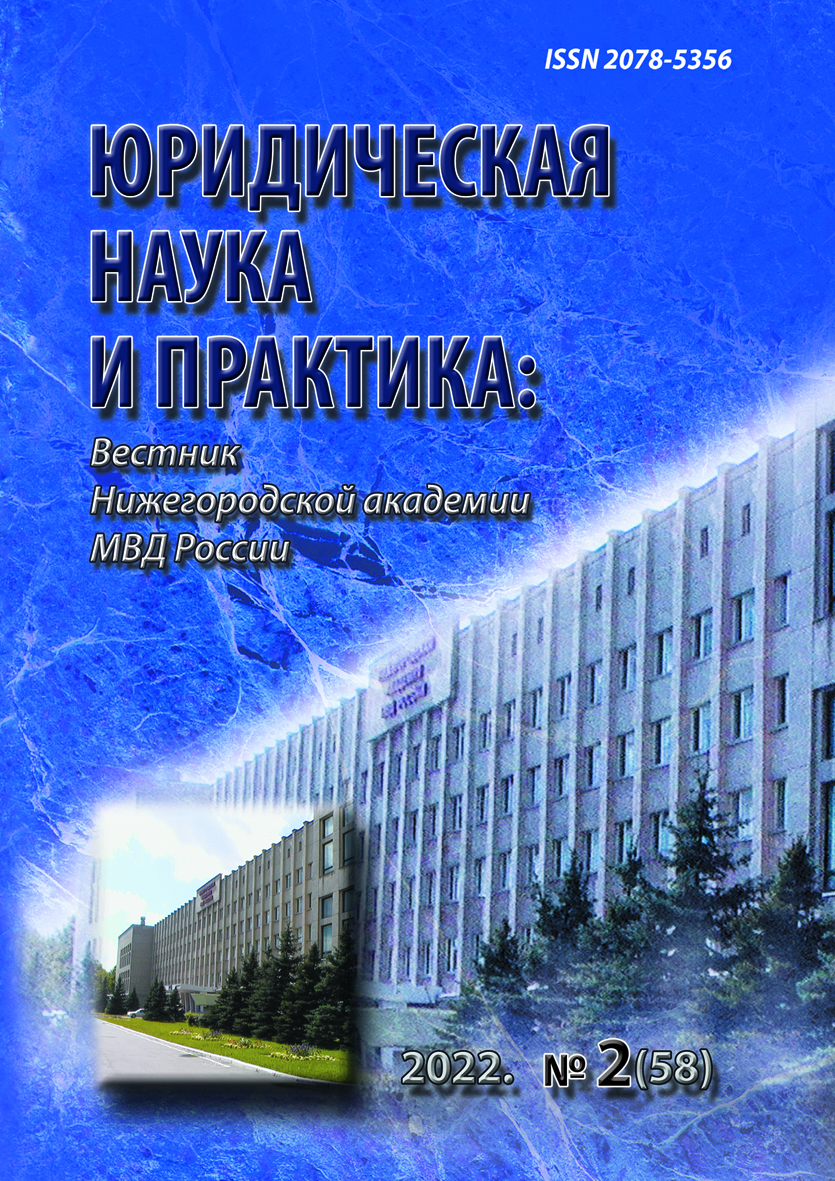Russian Federation
The article analyzes a concept that is fashionable in the modern Russian theory of criminal procedural evidence and explains the patterns of formation of criminal procedural evidence as a means of proof. One of the main such patterns, according to the author, is the relationship of a certain technology for the formation of evidence with the type of prosecution. The investigative form of bringing forward a public, as well as a private-public accusation, determines the investigative technology of proof. The transition to an accusatory system will make the technology of forming evidence in a criminal court adversarial.
technology of proof, criminal process, accusation, investigative form
1. Sheifer S. A. Evidence and proof in criminal cases: monograph. Moscow: Norma Publ., 2008. (In Russ.)
2. Sementsov V. A. Formation of evidence in the structure of criminal procedural proof. Actual problems of the modern criminal process in Russia: interuniversity collection of scientific papers / ed. by V. A. Lazareva. Samara: Samara State University, 2010. Pp. 236-242. (In Russ.)
3. Rossinsky S. B. Collecting evidence as the “first” stage of proof in a criminal case. Legal Bulletin of Samara University, 2020, vol. 6, no. 3, pp. 101-103. (In Russ.)
4. Pobedkin A. V. Theory and methodology of the use of verbal information in criminal procedure evidence. Dissertation… doctor of legal sciences. Moscow, 2005. 464 p. (In Russ.)
5. Sheifer S. A. Prosecutorial and investigative power: the essence and problems of relationships. Criminal justice: a scientific and practical guide in 3 volumes / ed. by N. A. Kolokolov. Moscow, 2016, vol. 2, pp. 23-27. (In Russ.)
6. Zaitsev O. A., Pastukhov P. S. The use of information technologies in Russian criminal proceedings. Bulletin of economic security, 2016, no. 5, pp. 40-43. (In Russ.)
7. Aleksandrov A. S., Andreeva O. I., Zaitsev O. A. On the prospects for the development of Russian criminal justice in the context of digitalization. Bulletin of the Tomsk State University, 2019, no. 448, pp. 199-207. (In Russ.)
8. Stelmakh V. Yu. The essence of the formation of evidence in criminal proceedings. Bulletin of the Ural Law Institute of the Ministry of Internal Affairs of Russia, 2016, no. 4, pp. 69-73. (In Russ.)
9. Tulchinsky G. L. Social technologies and knowledge. Philosophical sciences, 2014, no. 10, pp. 22, 27. (In Russ.)
10. Markov M. Technology and efficiency of social management. Moscow, 1982. (In Russ.)
11. Technology of social work: textbook for bachelors / ed. by E. I. Kholostova, L. I. Kononova. Moscow, 2012. (In Russ.)
12. Sycheva O. A. Tactics of judicial investigation: monograph. Ulyanovsk, 2012. (In Russ.)
13. Borulenkov Yu. P. Technological structure of legal knowledge as a composite element of the legal system of society. Legal science and law enforcement practice. Scientific and practical journal, 2013, no. 3 (25), pp. 11-20. (In Russ.)
14. Borulenkov Yu. P. Technologies of legal knowledge: concept and content. LEX RUSSICA. Scientific works of Moscow State Law Academy, 2015, no. 7, pp. 7-20. (In Russ.)
15. Vlasova S. V., Khmelnitskaya T. V. On the doctrinal model of the formation of criminal procedural evidence in adversarial criminal proceedings. Society and Law, 2016, no. 1 (55), pp. 137-143. (In Russ.)
16. Abdullaev Ya. D., Miller V. Yu. Two concepts of the formation of evidence in criminal proceedings. Legal Science and Practice: Journal of Nizhny Novgorod Academy of the Ministry of Internal Affairs of Russia, 2021, no. 1 (53), pp. 75-79. (In Russ.)
17. Kukhta A. A. Proving the truth in criminal proceedings: monograph. N. Novgorod: Nizhny Novgorod Academy of the Ministry of Internal Affairs of Russia, 2009. (In Russ.)
18. Rudich V. V. Organizational and legal mechanism for the application of preventive measures in criminal proceedings: monograph. Moscow: Yurlitinform Publ., 2018. (In Russ.)
19. Model Codes for Post-Conflict Criminal Justice. Vol. II. Model Code of Criminal Procedure. Edited by Vivienne O’Connor and Colette Rausch with HansJoerg Albrecht and Goran Klemencic. Washington: United States Institute of Peace Press Publ., 2008.












